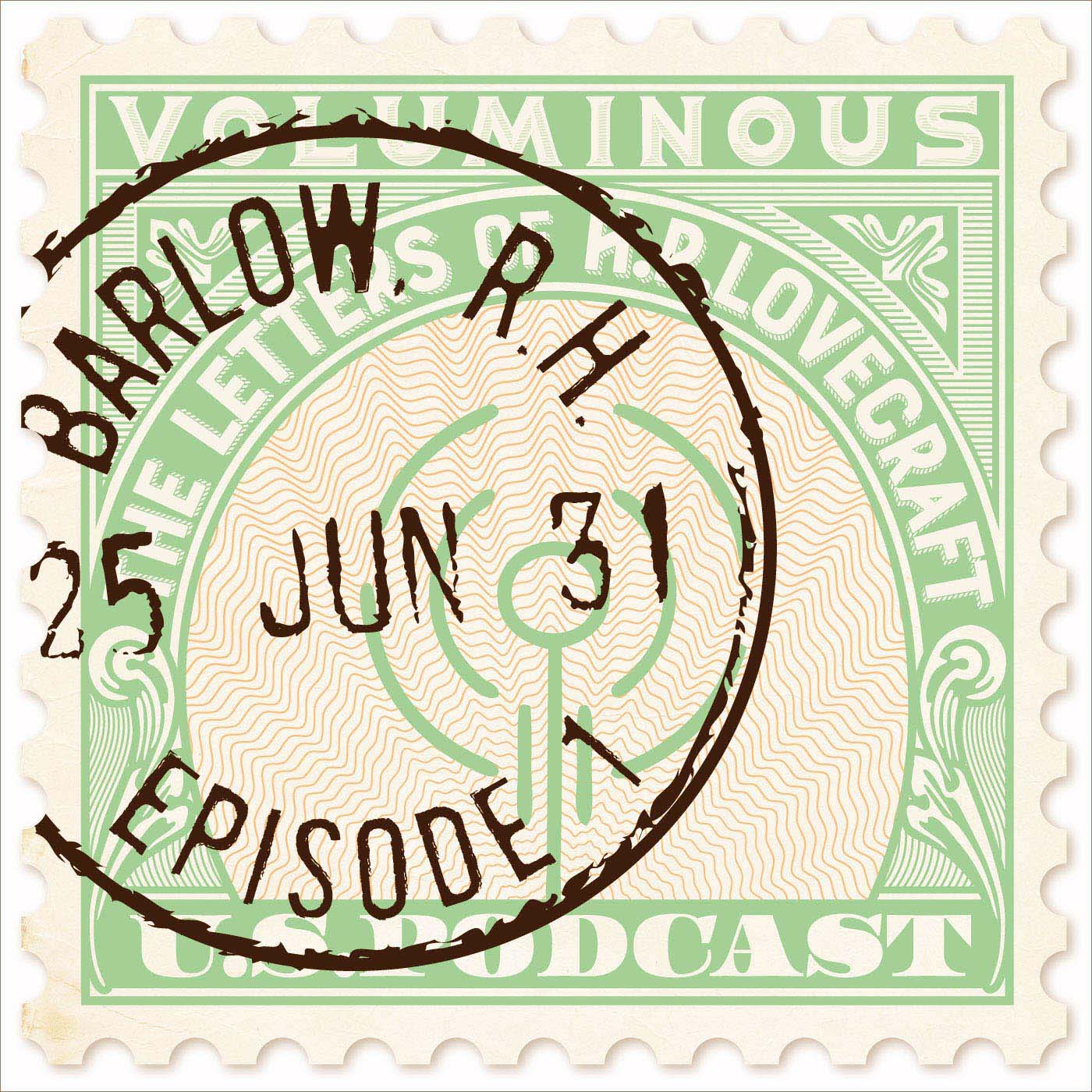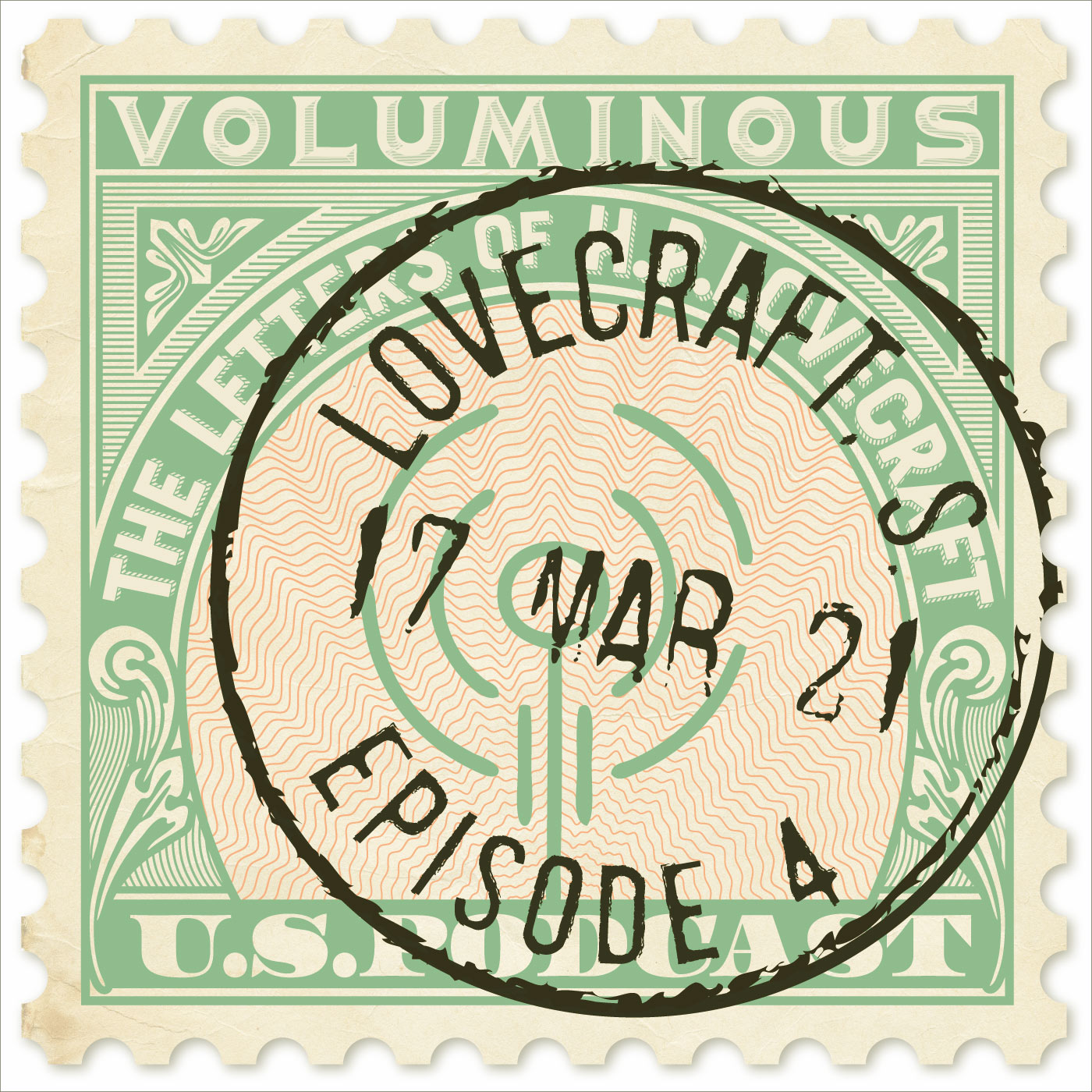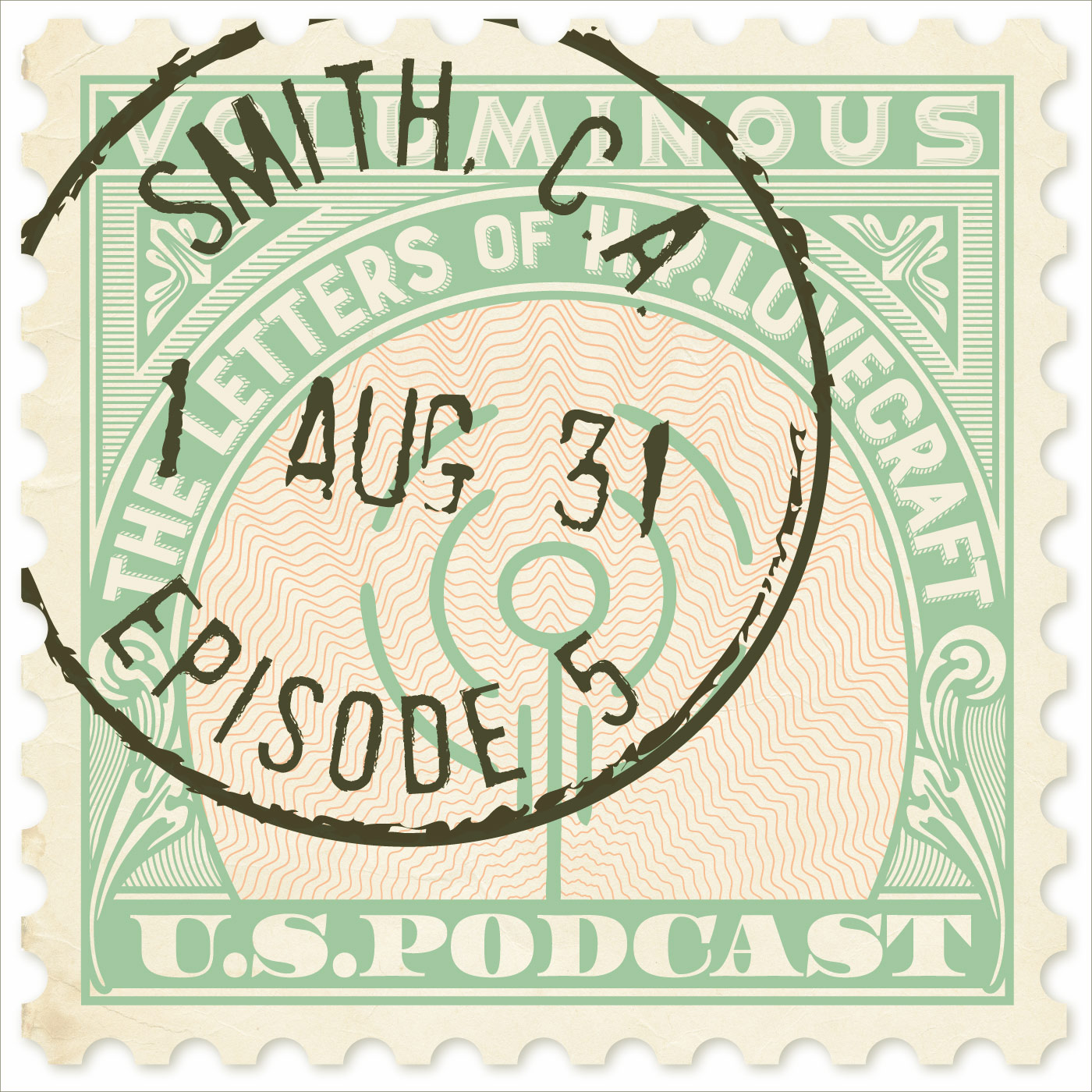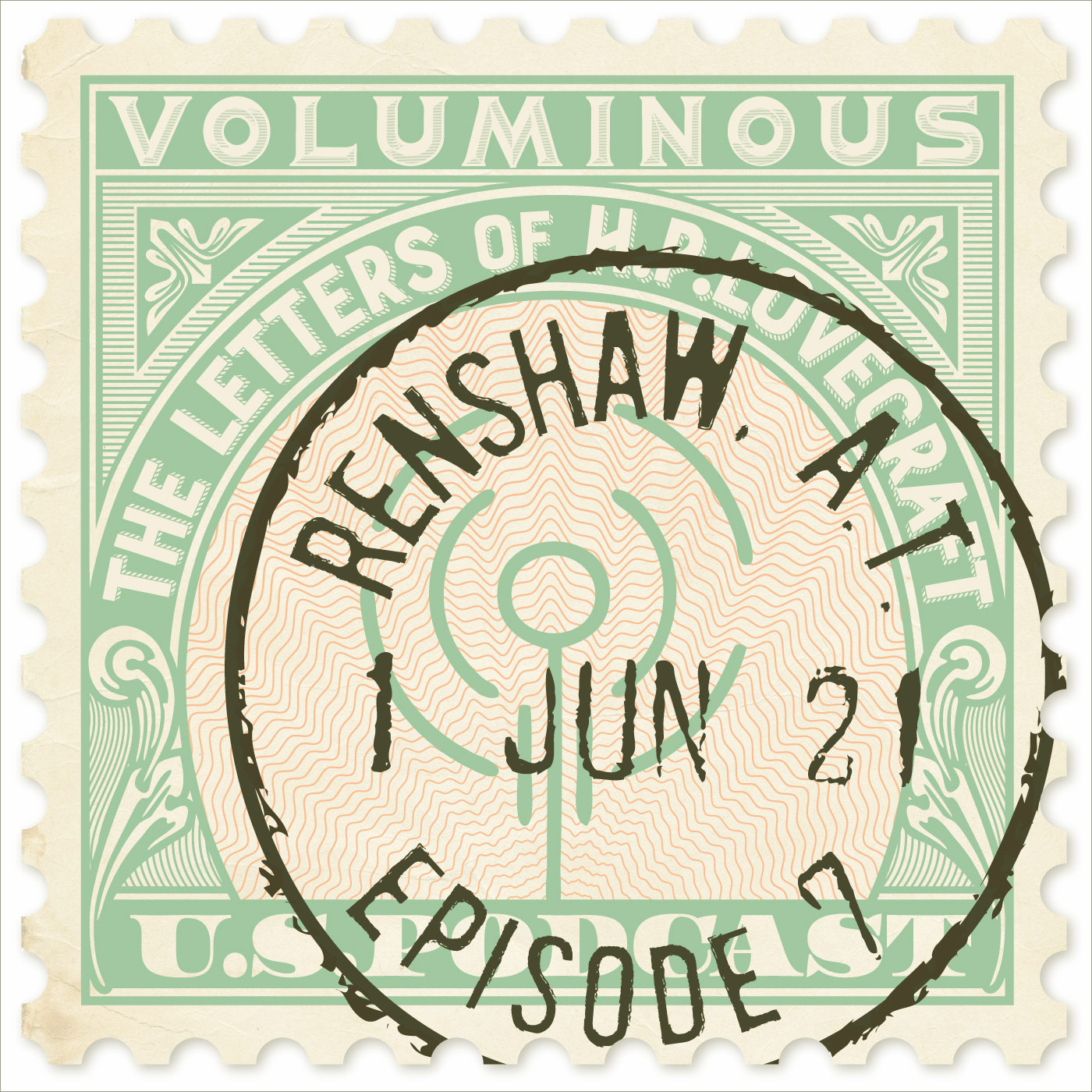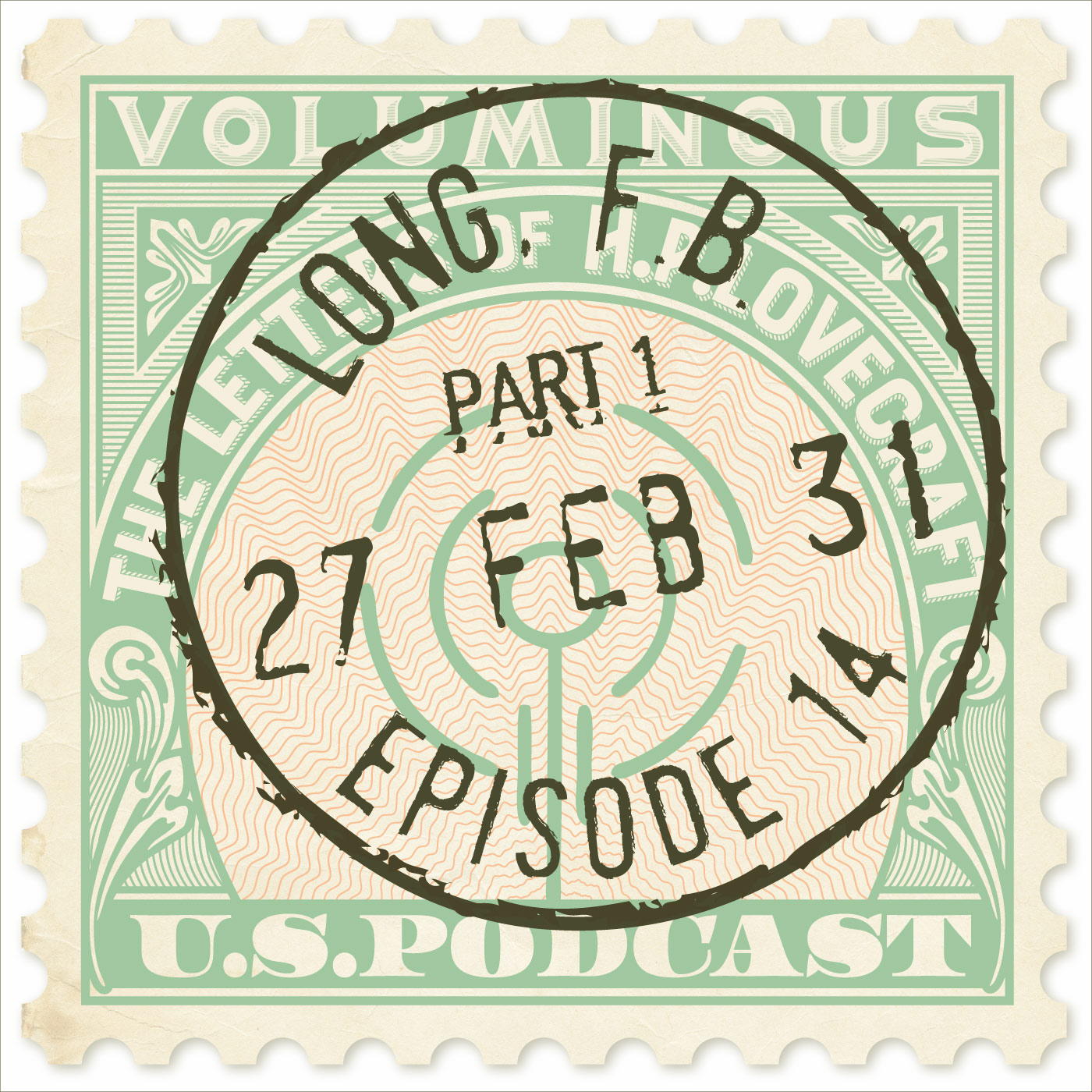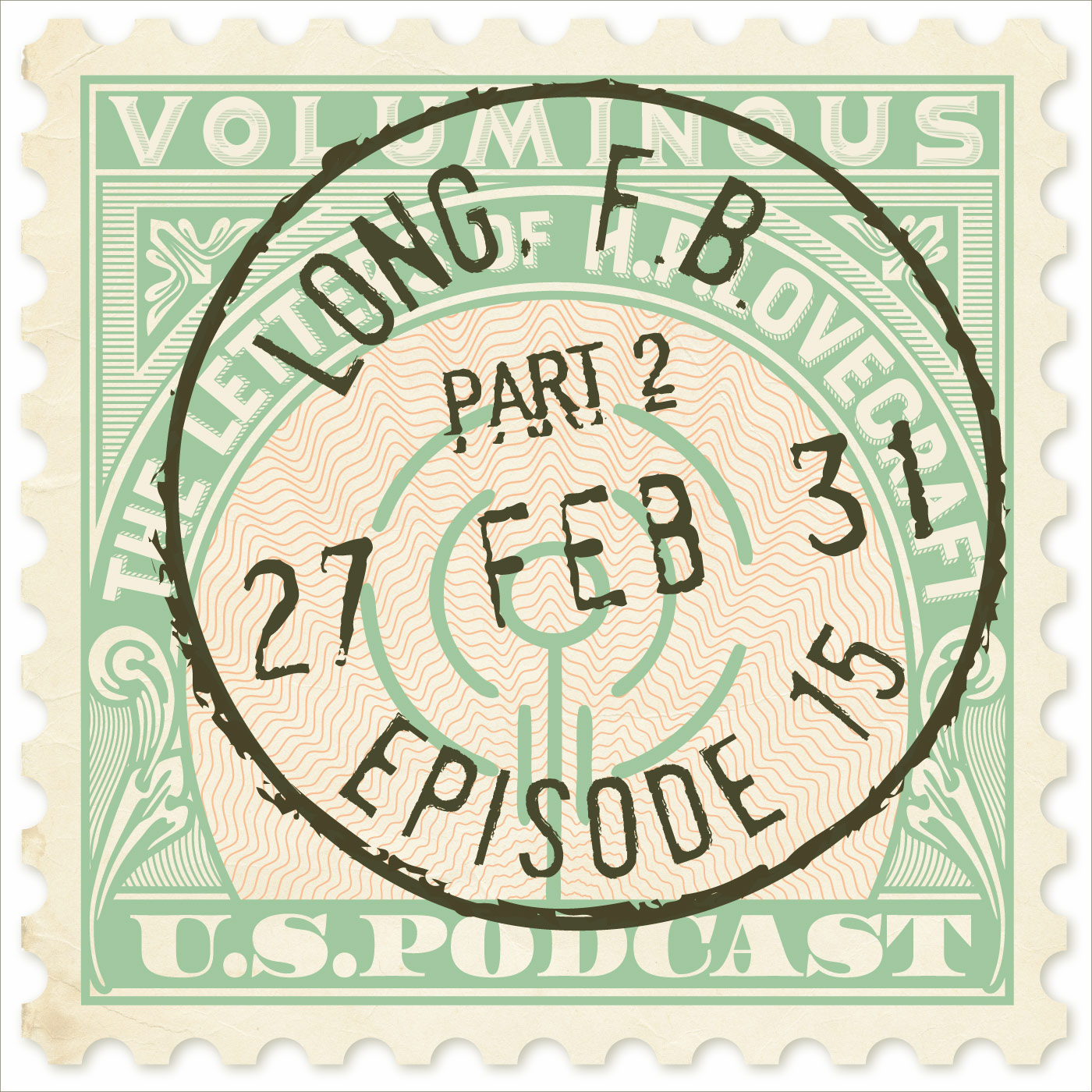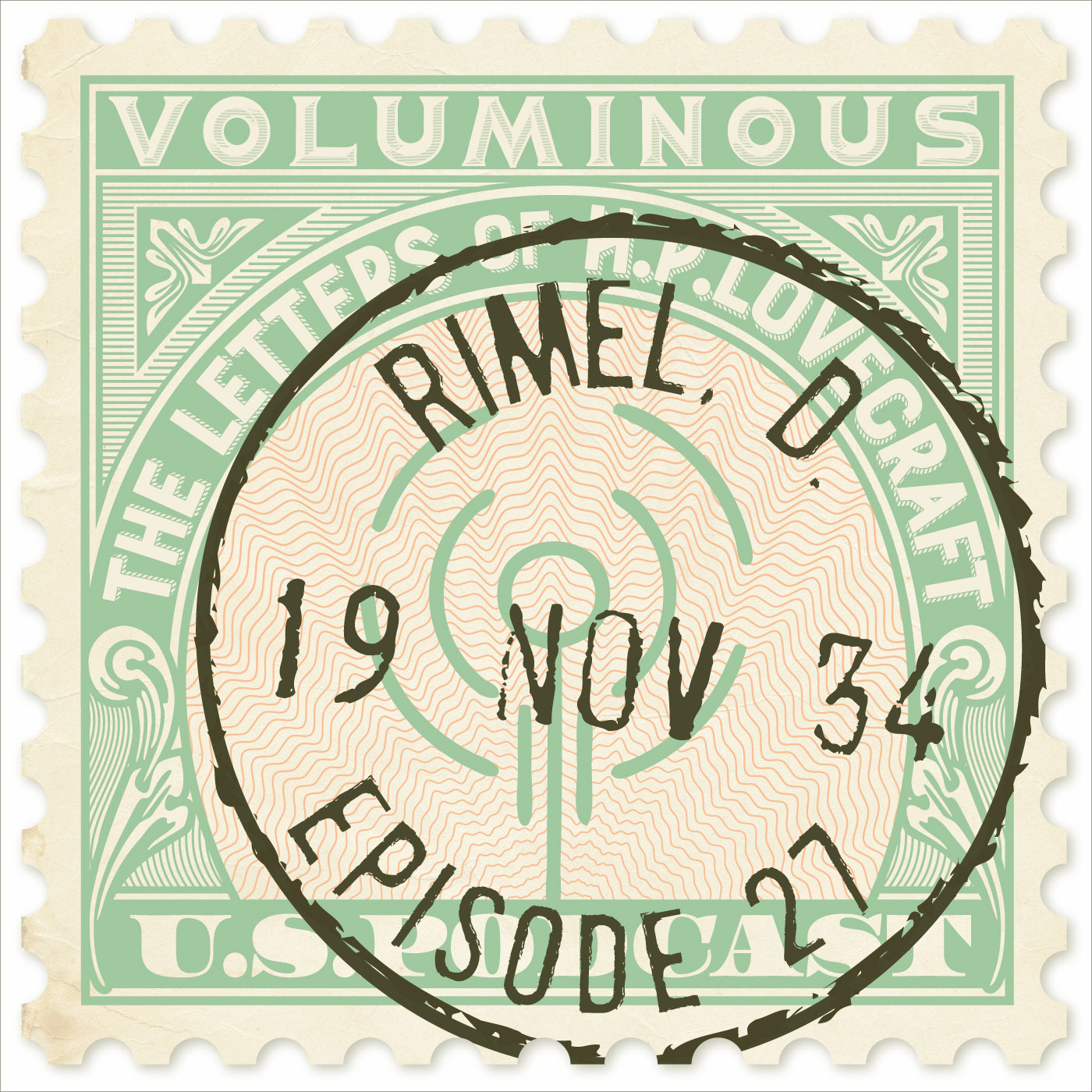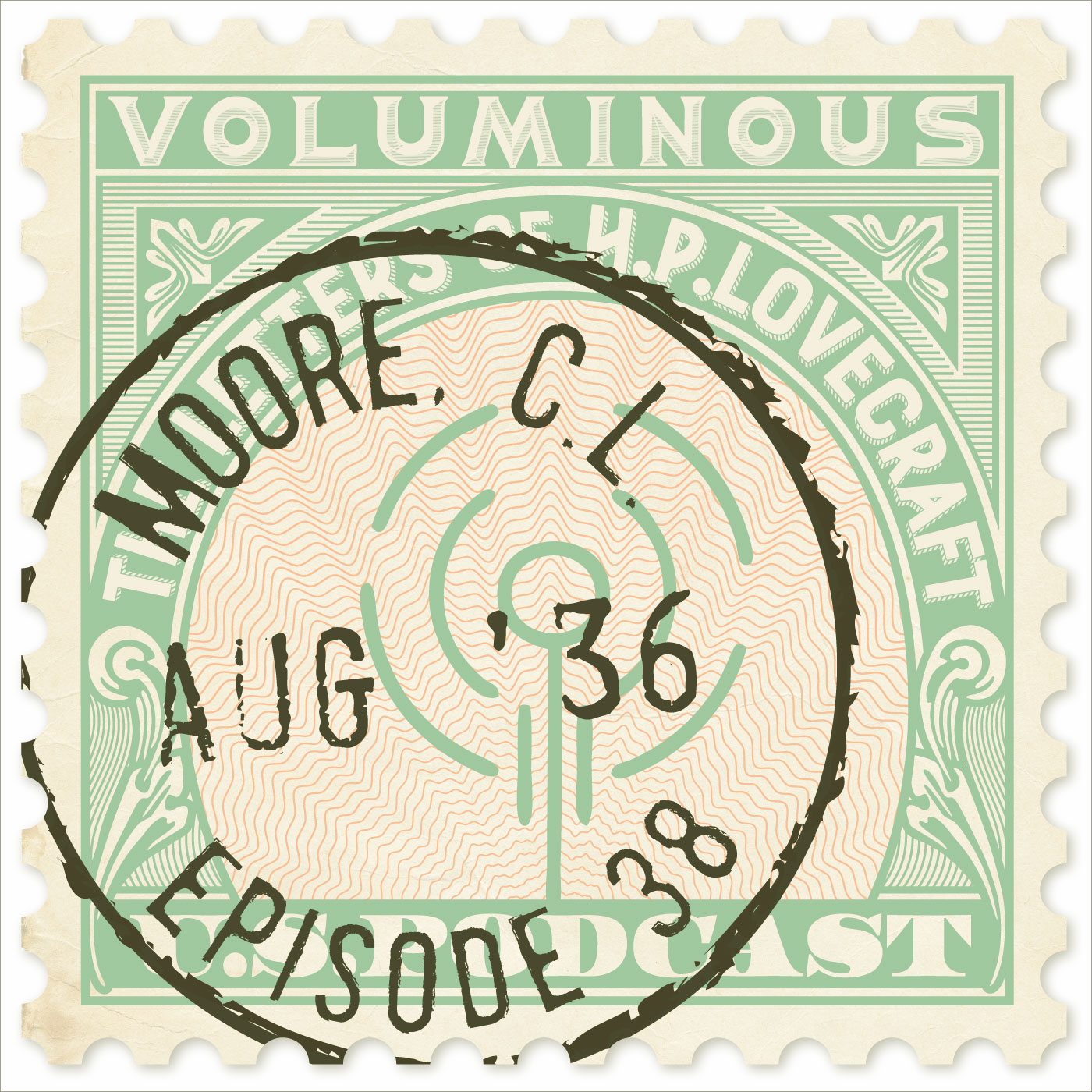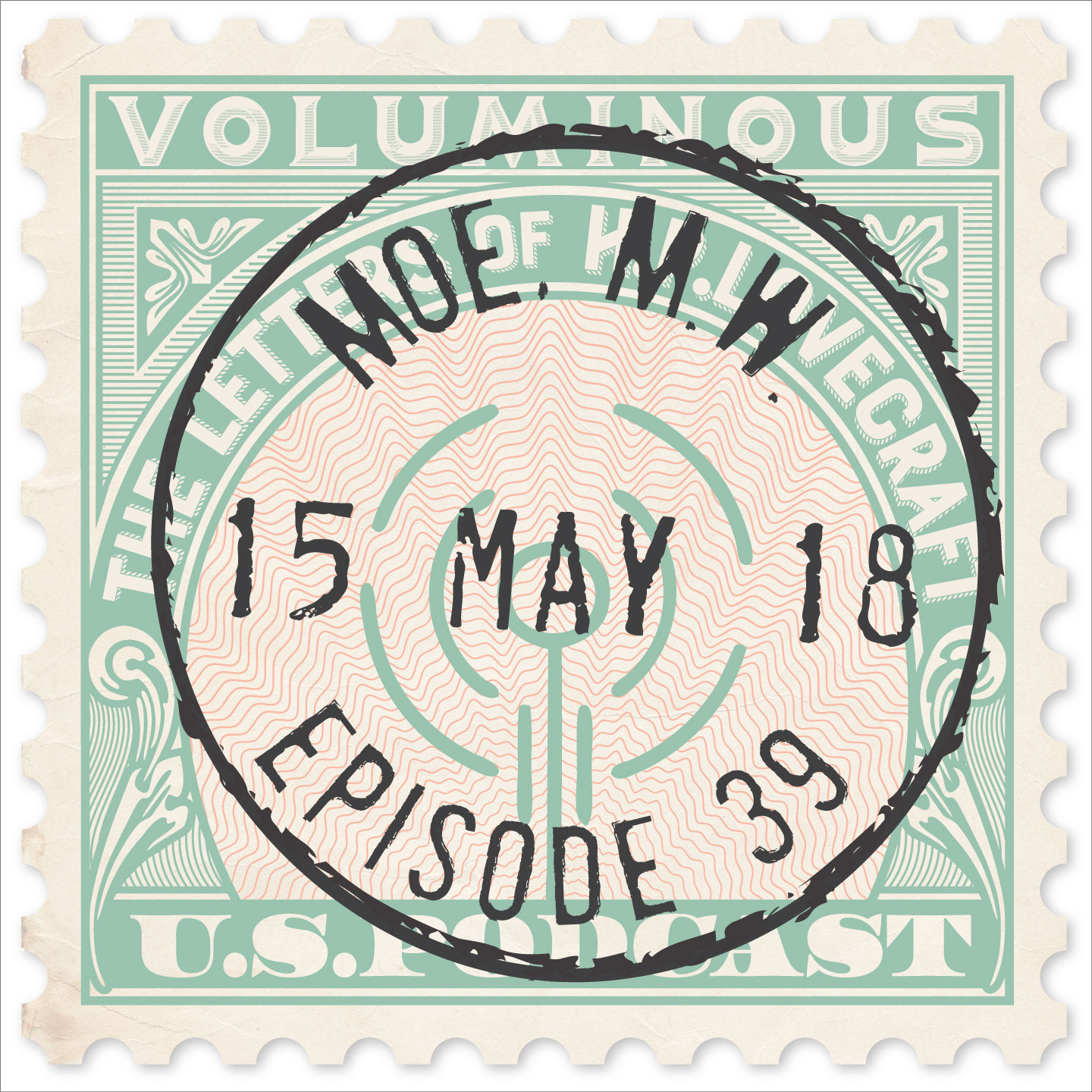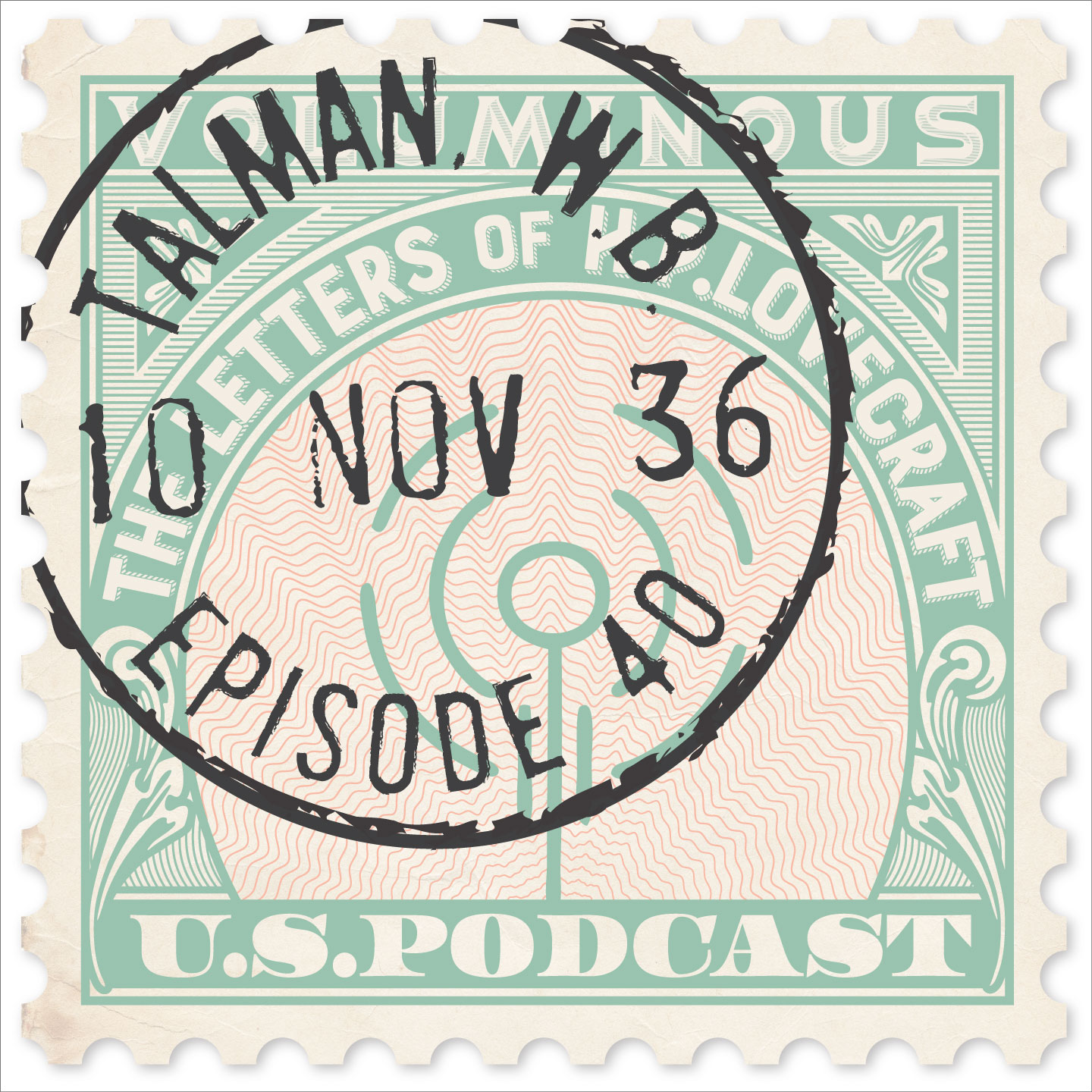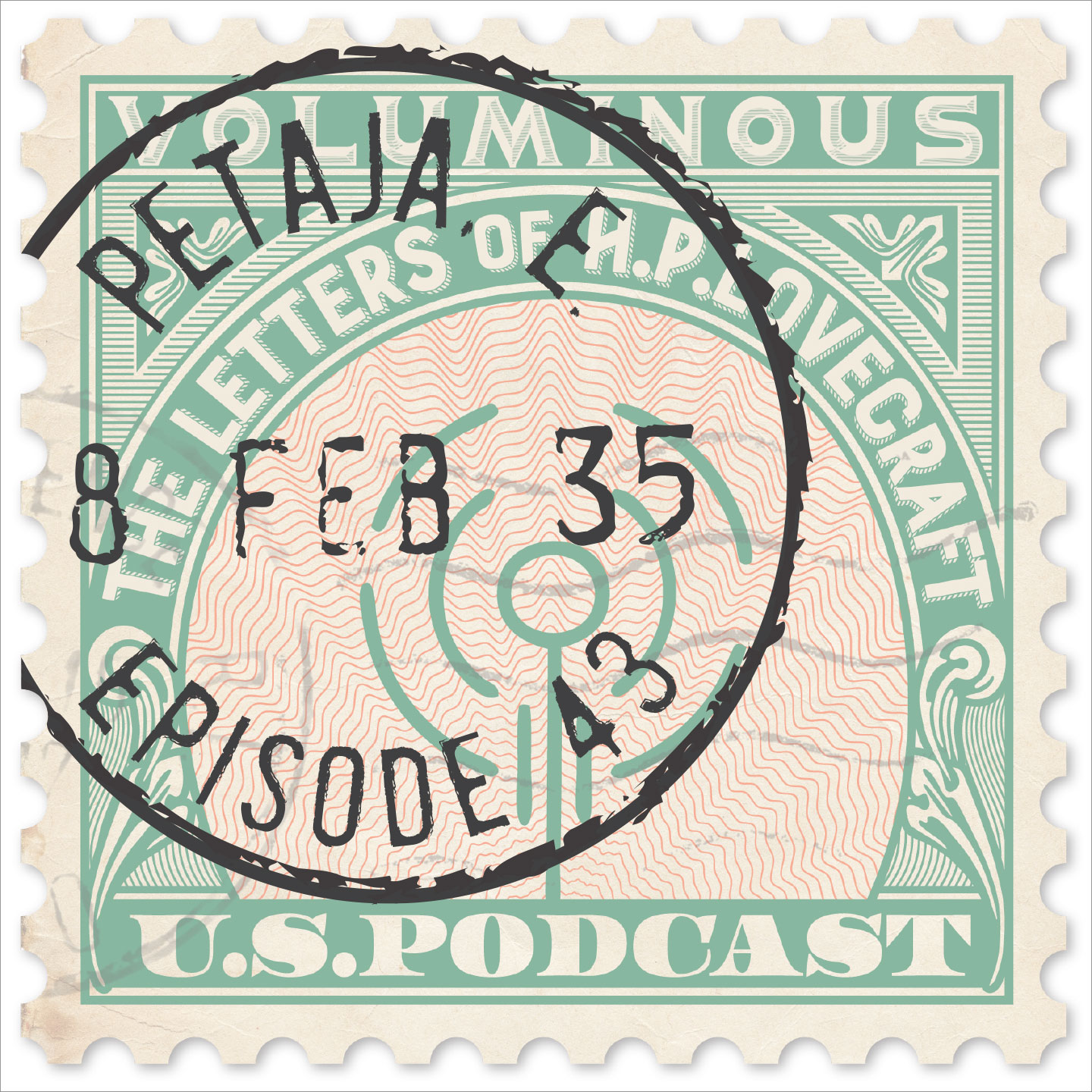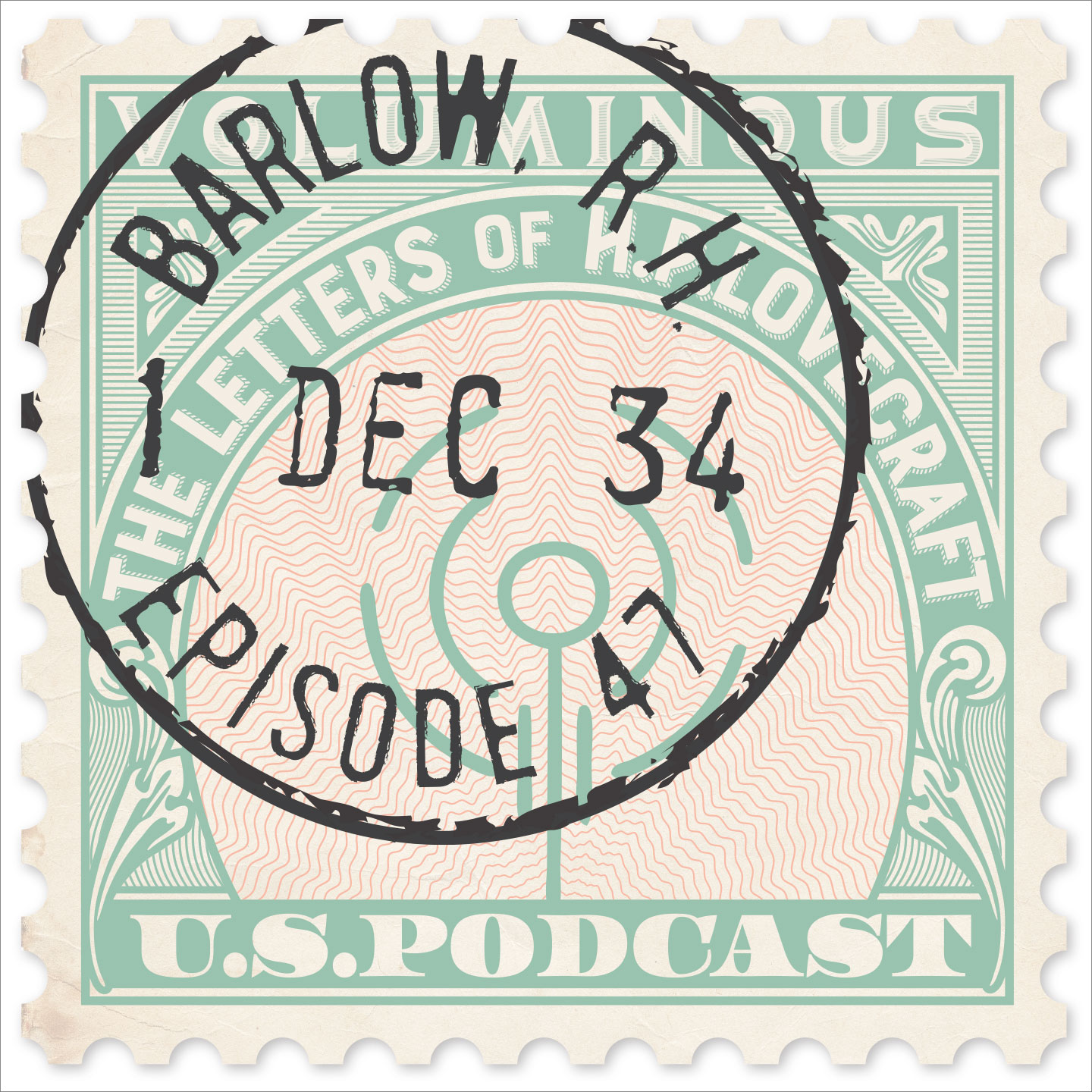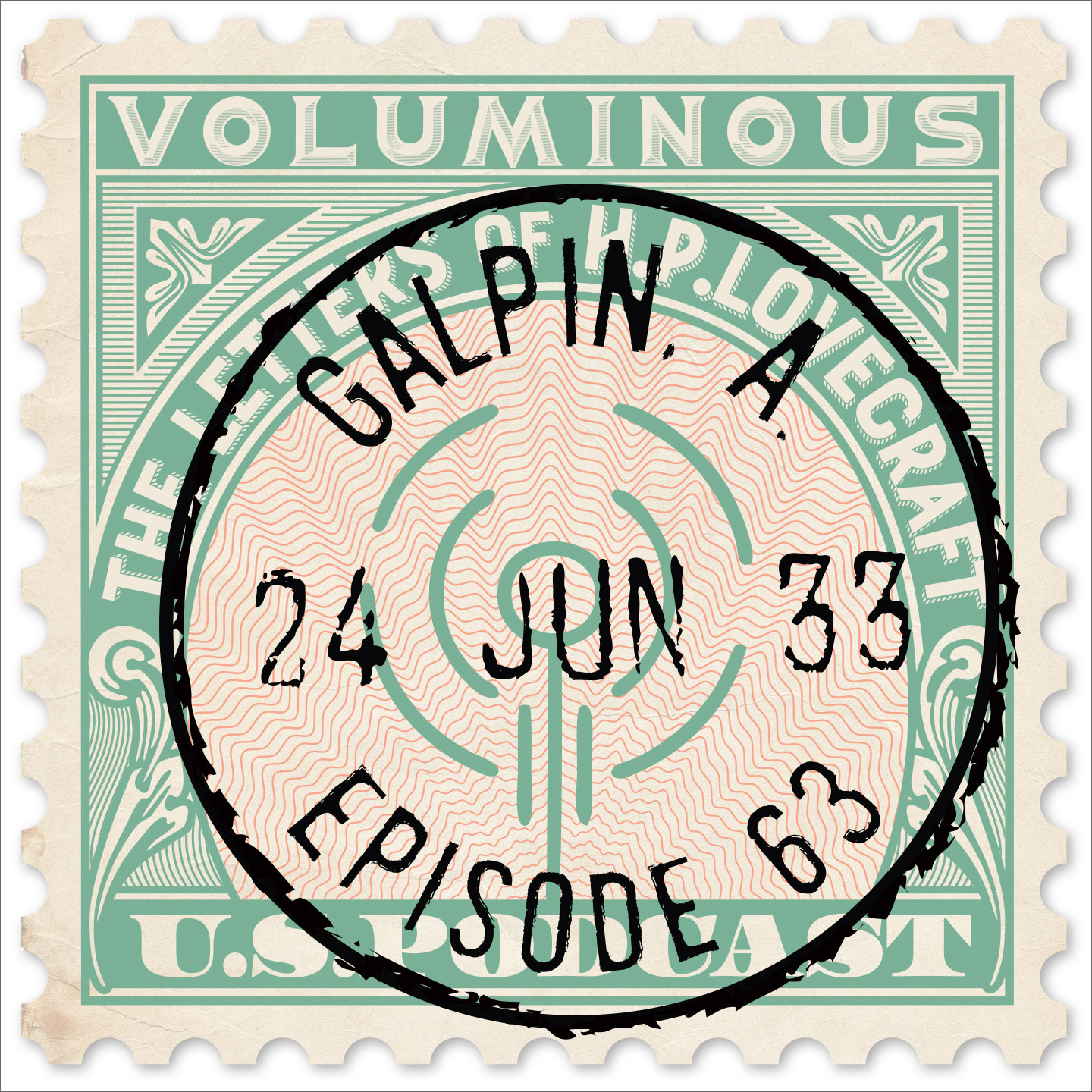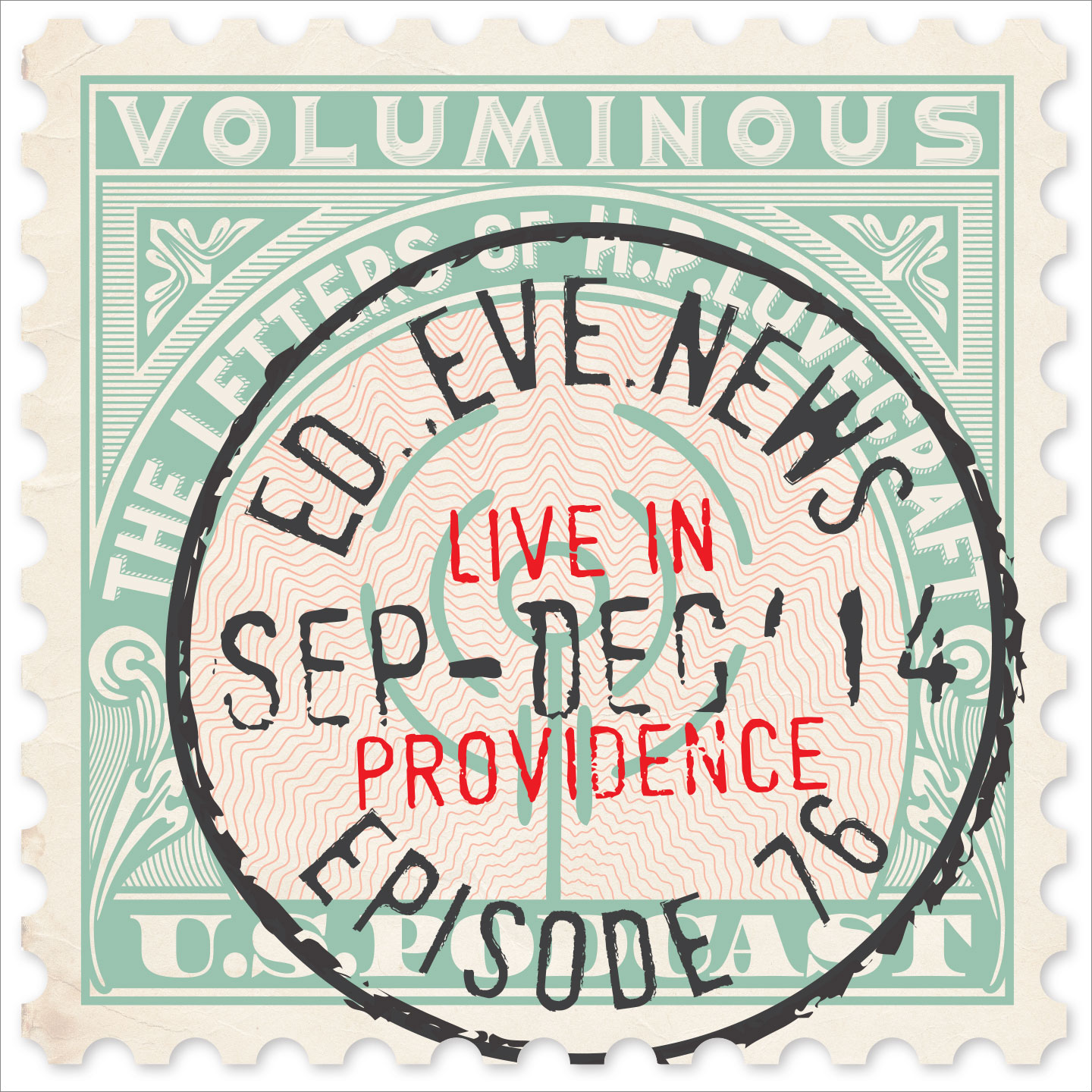
In addition to his classics of horror fiction, it is estimated that Lovecraft wrote 100,000 letters — or roughly 15 every day of his adult life — ranging from one-page diaries to seventy-page diatribes. Perhaps 20,000 of those letters have survived, in the hands of private collectors and at the John Hay Library in Providence.
In each episode of this podcast, we'll read one of these letters (or part of it) and then discuss it. In his letters HPL reveals an amazing breadth of knowledge of philosophy, science, history, literature, art and many other subjects, and forcefully asserts some highly considered opinions (some of which can be upsetting).
And of course his letters offer a fascinating window into his personal life and times. Although we've been working with Lovecraftian material for over 30 years, we still find interesting new things in his letters, and while we don't claim to be experts we look forward to sharing them with a wider audience.
Subscribe via iTunes, Stitcher or wherever you get podcasts! Or listen right here!
RSS Feed- Episode 71
- Posted April 3, 2022
Enemies of Civilization
In what was to be his last extant letter to Robert E. Howard, May 7, 1936, HPL continues their long-running controversy over the relative merits of civilization and barbarianism, using the ongoing Italian invasion of Ethiopia as a case study. Bleep Warning: this episode contains one instance of the word we bleep at about 33:38.
Music by Troy Sterling Nies. Thanks to S.T. Joshi, David E. Schultz and Rusty Burke for their book A Means to Freedom: the Letters of H.P. Lovecraft and Robert E. Howard. Special thanks to blogger/scholar Bobby Derie and HPLHS Member and active military officer Scott Marshall.

 Bobby Derie has an excellent blog we recommend: Deep Cuts in a Lovecraftian Vein. Be sure to check out his series "Her Letters to Lovecraft", in which he focuses attention on women with whom HPL corresponded. We also highly recommend Bobby's books, which happen to be available from our friends at Hippocampus Press: Sex & the Cthulhu Mythos and Weird Talers: Essays on Robert E. Howard and Others. We understand he's working on a new one, and we look forward to what he's cooking up. Meanwhile, you can read Bobby's interesting and thought-provoking tweets @Ancient0History. We do!
Bobby Derie has an excellent blog we recommend: Deep Cuts in a Lovecraftian Vein. Be sure to check out his series "Her Letters to Lovecraft", in which he focuses attention on women with whom HPL corresponded. We also highly recommend Bobby's books, which happen to be available from our friends at Hippocampus Press: Sex & the Cthulhu Mythos and Weird Talers: Essays on Robert E. Howard and Others. We understand he's working on a new one, and we look forward to what he's cooking up. Meanwhile, you can read Bobby's interesting and thought-provoking tweets @Ancient0History. We do!
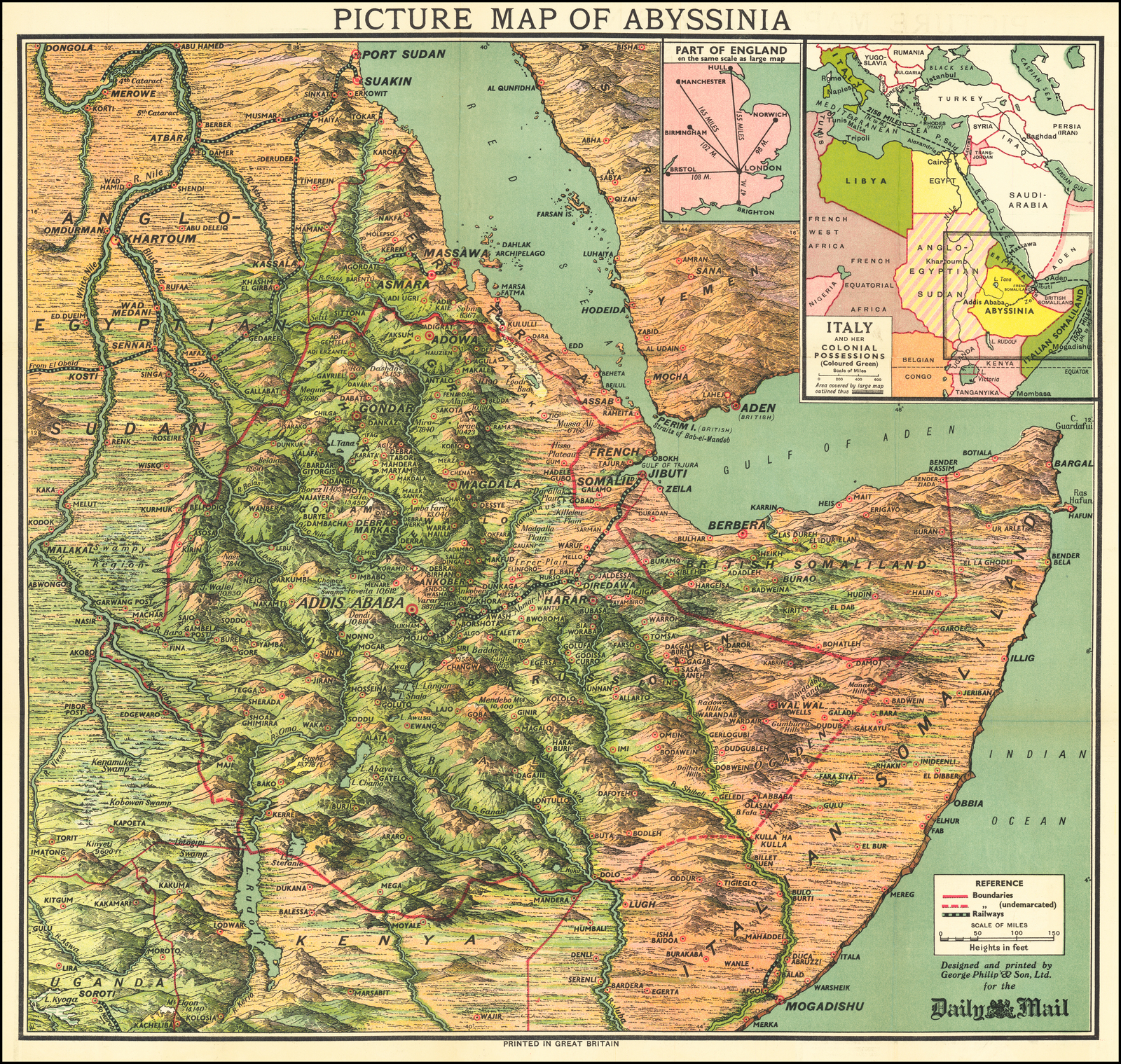 Ethiopia, which in Lovecraft's day was called Abyssinia by people who did not live there, had a long history. Paleontological evidence (not yet discovered in HPL's time) suggests that Homo Sapiens got our start in Ethiopia about 200,000 years ago, and spread across the world from there. The royalty of Ethiopia in the Middle Ages traced their lineage from King Solomon and the Queen of Sheba of Biblical fame. In an attempt to build its own empire, the Ethiopian army of the late 19th century did indeed commit some genocidal atrocities against neighboring groups. The Italians first tried to invade in 1896, after first signing a treaty pledging to protect Ethiopia in exchange for getting Eritrea, but the Ethiopian army defeated the Italians at the battle of Adwa, and in Lovecraft's day it was one of only two independent countries on the continent of Africa. Haile Selassie became Emperor in 1916 and began an effort to modernize the country.
Ethiopia, which in Lovecraft's day was called Abyssinia by people who did not live there, had a long history. Paleontological evidence (not yet discovered in HPL's time) suggests that Homo Sapiens got our start in Ethiopia about 200,000 years ago, and spread across the world from there. The royalty of Ethiopia in the Middle Ages traced their lineage from King Solomon and the Queen of Sheba of Biblical fame. In an attempt to build its own empire, the Ethiopian army of the late 19th century did indeed commit some genocidal atrocities against neighboring groups. The Italians first tried to invade in 1896, after first signing a treaty pledging to protect Ethiopia in exchange for getting Eritrea, but the Ethiopian army defeated the Italians at the battle of Adwa, and in Lovecraft's day it was one of only two independent countries on the continent of Africa. Haile Selassie became Emperor in 1916 and began an effort to modernize the country.
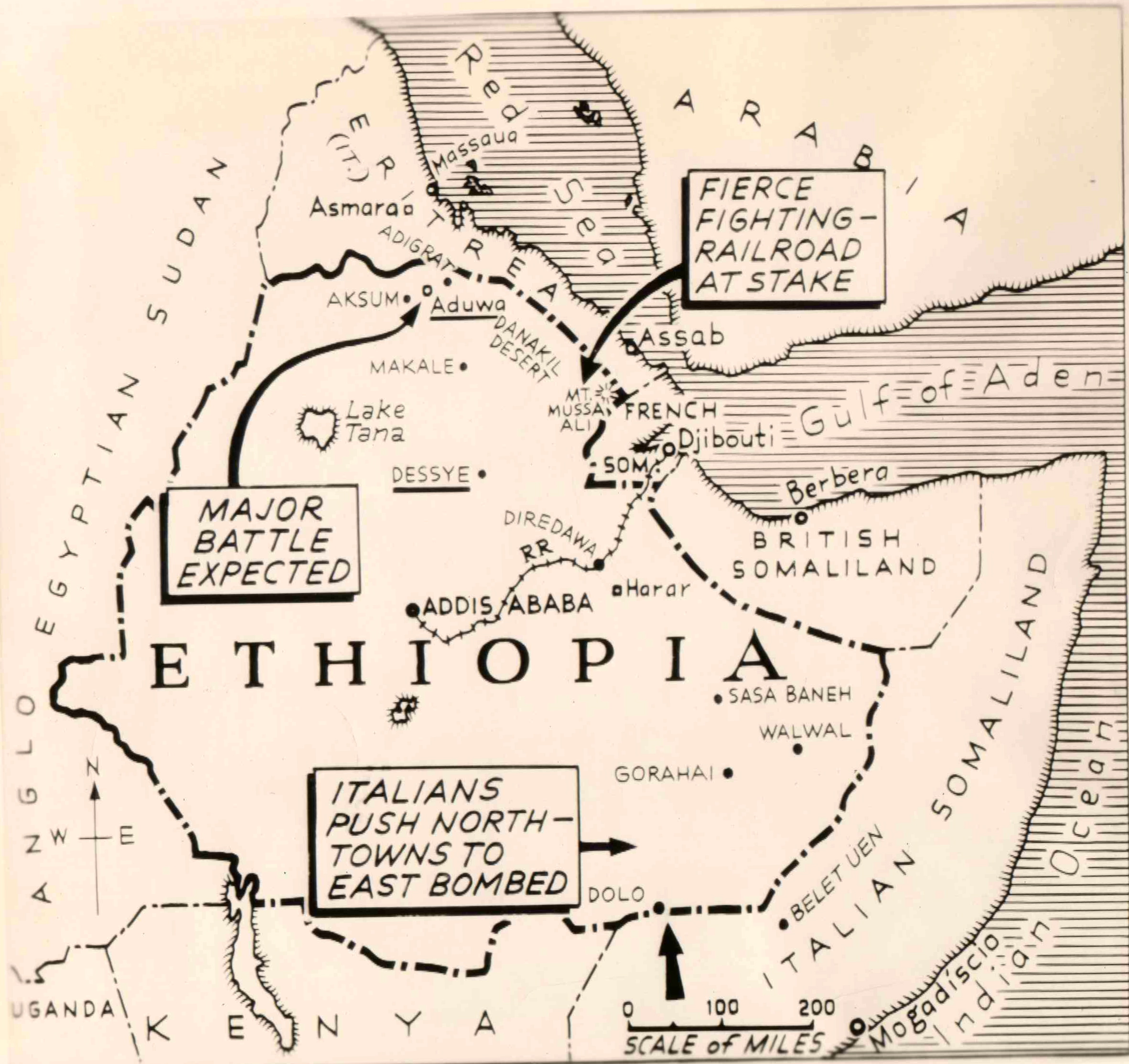 Mussolini launched a new invasion of Ethiopia on October 3, 1935. Fighting went back and forth for months, during which time the Italians used mustard gas, tanks, aerial bombardment and other technological advancements that had been created during WWI. The British and the French, who controlled territory to the north of Ethiopia, offered to give Ethiopia to Italy in order to protect their own regional interests. When word of this offer was leaked by the press the deal broke down and the diplomats involved lost their jobs. Haile Selassie was forced into exile on May 2 of 1936, and the Italians captured the capital, Addis Ababa, just a couple of days before Lovecraft wrote this letter. The Italians declared victory, but Ethiopian resistance continued for years.
Mussolini launched a new invasion of Ethiopia on October 3, 1935. Fighting went back and forth for months, during which time the Italians used mustard gas, tanks, aerial bombardment and other technological advancements that had been created during WWI. The British and the French, who controlled territory to the north of Ethiopia, offered to give Ethiopia to Italy in order to protect their own regional interests. When word of this offer was leaked by the press the deal broke down and the diplomats involved lost their jobs. Haile Selassie was forced into exile on May 2 of 1936, and the Italians captured the capital, Addis Ababa, just a couple of days before Lovecraft wrote this letter. The Italians declared victory, but Ethiopian resistance continued for years.
We can't say if they're the same newsreels Lovecraft saw, but you can check out some of the contemporary coverage of events below. (Fox Movietone News should not be confused with the current Fox News network, although the current organization is a corporate descendant of the original Fox News started in 1919.) Also, here's the complete version of Randy Newman's "The Great Nations of Europe".
 Like HPL and REH, we also have not read the classic book on the philosophy of war by Carl von Clausewitz, On War, written over the course of many years and published posthumously in 1832. (Had Andrew read it, perhaps he would have more correctly identified when it came out during the discussion...) Our dear friend Scott Marshall has read it, and we are deeply grateful to him for providing us with some pertinent quotes. Our friend Caitlin Fitz Gerald of Helios House Press has written an illustrated version for kids which might be a good place for us to start. If you could use a primer on war theory, a second printing is now in the works and is available for pre-order at the Helios House website. (Helios House Press is partnering with us to produce Miskatonic Missives, which is actively in the works!)
Like HPL and REH, we also have not read the classic book on the philosophy of war by Carl von Clausewitz, On War, written over the course of many years and published posthumously in 1832. (Had Andrew read it, perhaps he would have more correctly identified when it came out during the discussion...) Our dear friend Scott Marshall has read it, and we are deeply grateful to him for providing us with some pertinent quotes. Our friend Caitlin Fitz Gerald of Helios House Press has written an illustrated version for kids which might be a good place for us to start. If you could use a primer on war theory, a second printing is now in the works and is available for pre-order at the Helios House website. (Helios House Press is partnering with us to produce Miskatonic Missives, which is actively in the works!)
 We were delighted to learn in this letter about James Burnett, Lord Monboddo, pictured here wearing plenty of clothes. As enemies of civilization go, he sounds like a fun one!
We were delighted to learn in this letter about James Burnett, Lord Monboddo, pictured here wearing plenty of clothes. As enemies of civilization go, he sounds like a fun one!
The news can be overwhelming, and sometimes it feels like there's nothing to do but worry or disengage. But there are ways to help. We are donating to help people fleeing from violence in Ukraine and elsewhere to the International Rescue Committee. Other worthy organizations include Alight and the International Committee of the Red Cross.
